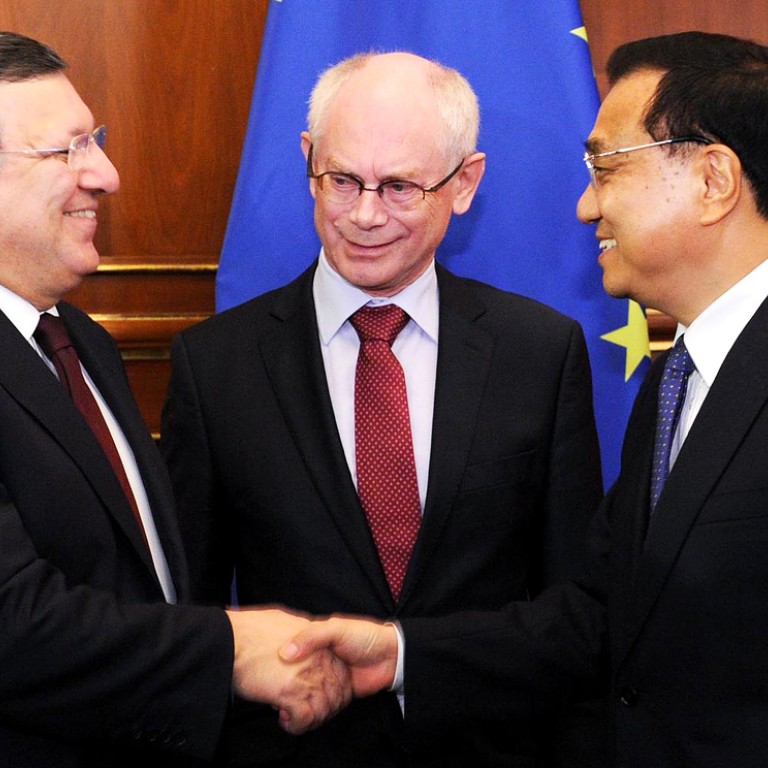
Mainland investment abroad surges 90pc
Appeal of overseas markets is growing amid property downturn and excess capacity at home
A surge in investments by mainland companies abroad has highlighted the growing appeal of overseas markets amid economic pressures at home, even as foreign capital inflows staged a modest pick-up last month.
Outward direct investment (ODI) by non-financial companies on the mainland soared 90.5 per cent in September to US$9.8 billion, after more than doubling the year-earlier level in August, the Ministry of Commerce said yesterday.
The data comes amid a rash of multibillion-euro deals signed by Premier Li Keqiang in trade and investment agreements with countries from Italy to Russia during his latest trip to the region.
"The trend of outward investment is very favourable," ministry spokesman Shen Danyang said. "Chinese companies are particularly active in making investments and mergers and acquisitions in the overseas mining and manufacturing sectors."
Apart from rising opportunities in these areas, mainland companies have sought to diversify risks at home, where a prolonged property downturn and excess capacity in many industries are weighing on efforts to maintain economic growth. Beijing has also encouraged companies to invest overseas in a bid to ease pressures on the mainland's huge foreign exchange reserves, which stood at US$3.89 trillion at the end of September. The reserves edged down from US$3.99 trillion at the end of June as the US dollar strengthened.
The bullish picture on outbound investment contrasts with an anaemic rise in foreign direct investment (FDI), which nevertheless saw a reversal from a slump in recent months. The mainland received US$9.01 billion in investments last month, up 1.9 per cent from a year earlier. Inflows had dropped 14 per cent in August and 17 per cent in July.
In the first nine months of the year, FDI slipped 1.4 per cent to US$87.4 billion.
A string of anti-monopoly investigations into companies such as Audi and Qualcomm have sparked concerns about a worsening business climate. The state-run last week ran full-page reports accusing multinationals of exploiting China through tax avoidance.
The government has defended the fairness of its policy and pledged to open the market further.
"Foreign direct investment inflows into China are likely to stay steady, barring any major volatilities internationally and domestically," Shen said.
Monthly FDI figures tend to fluctuate, analysts say, as they can be amplified by major one-off deals.
Chinese officials cite rising labour costs for the country's declining competitiveness compared to other emerging markets such as Vietnam and Brazil.
However, Shen said China would continue to attract foreign investors because of factors including its political, economic and social stability, huge market, a vast pool of high-end talent and improving infrastructure.
FDI from South Korea and Britain jumped more than 30 per cent from January to September. Investment from Japan sank 43 per cent. Inflows from the US dropped 24.7 per cent and those from the EU fell 18.8 per cent.

